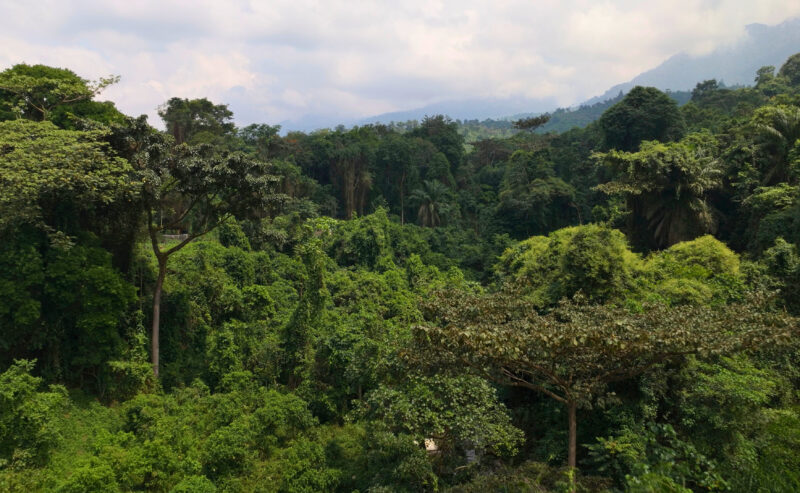
Contribute to the Century Ahead >
An unprecedented attack occurred yesterday on Virunga’s staff and infrastructure programs at the hydro-electric power plant at Rwanguba, in the Rutshuru District of North Kivu. The construction project, financed by the European Union, is the largest energy production project in the eastern Democratic Republic of Congo. The attack involving artillery fire resulted in casualties within residential populations around the plant as well as significant material damage to the site’s equipment. The park authorities were able to evacuate staff in the early stages of the attack avoiding any staff casualties. Eyewitnesses are reporting the fire came from positions held by the newly reformed M23 rebels though the reason for the
attack on crucial Congolese infrastructure is unknown.
Virunga National Park is at the heart of the region affected by the recent M23 rebellion. Its Mountain Gorilla sector, in the south of the park straddles the border between Rwanda and the Democratic Republic of Congo and has been the object of intense fighting since October 2021. On 22nd November 2021, a park ranger, Etienne Kanyaruchinya, was killed during a violent attack on a patrol post in Bukima, highlighting a marked uptick in violence against the park staff.
Olivier Mushiete, the Director General of the Congolese Institute for Nature Conservation (ICCN, the national agency responsible for the management of Congo’s national parks), said today: “ICCN strongly condemns this latest attack. ICCN Rangers are law enforcement officers responsible for protecting conservation areas. Their mandate is to ensure the protection of Congolese natural heritage which, in the case of Virunga National Park, is also listed as a UNESCO World Heritage Site. Equally, non-armed park staff working on the park’s development programs carry out their work with the sole objective of building a more peaceful and prosperous future for the poorest people of North Kivu. Today’s attack will not
undermine their determination to pursue their mission.”
Notes to Editor:
For close to a decade, Virunga National Park has been working on producing renewable energy as part of a strategy to use the Park’s resources in a sustainable manner, promoting green economic development and stimulating job creation. The park’s power plants are set to produce close to 42MW, making it eastern Congo’s largest source of renewable energy. Those power plants are being built thanks to the financial support of the EU, through their development programs aimed at targeting poverty in North-Kivu.
An 2019 independent analysis by the UK research institution, Cambridge Econometrics, estimated that this level of energy production has already generated over 30,000 jobs in this region suffering from extreme poverty. This figure is expected to reach beyond 100,000 by 2030.
Virunga National Park (Parc National des Virunga), in the eastern Democratic Republic of the Congo, is 7,800-square-kilometers (3,000 sq mi) stretching from the Virunga Mountains in the South, to the Rwenzori Mountains in the North, bordering Volcanoes National Park in Rwanda and Rwenzori Mountains National Park and Queen Elizabeth National Park in Uganda. The park was established in 1925 as Africa’s first national park and has been a UNESCO designated World Heritage Site since 1979. In recent years poaching and the Congo Civil War have seriously damaged its wildlife population. The park’s ecosystems are today being restored thanks to the work of ICCN rangers.
Virunga National Park is managed by the Congolese National Park Authorities, the Institut Congolais pour la Conservation de la Nature (ICCN) and its partner the Virunga Foundation. The Institut Congolais pour la Conservation de la Nature (ICCN) is the Congolese governmental institution tasked with the management of protected areas in the DRC. ICCN rangers are mandated with the protection of ecosystems and wildlife, which, at Virunga National Park, also include the endangered Mountain Gorilla.
For press enquiries, please contact press@virunga.org
Learn More
Learn More